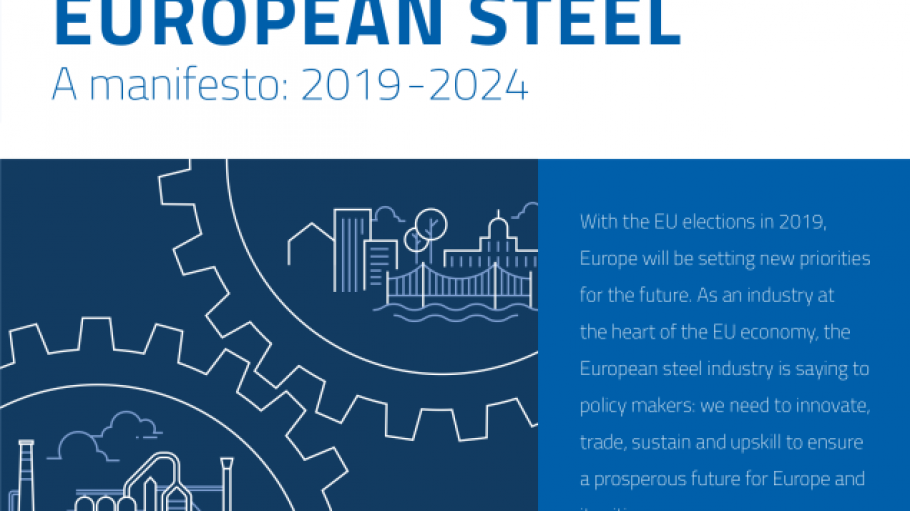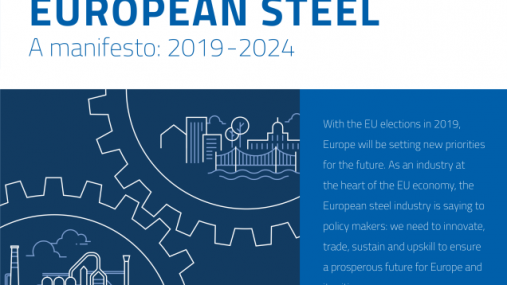

With the EU elections having taken place in May 2019, Europe is setting new priories and direction for the future. As an industry at the heart of the EU economy, the European steel industry is saying to policy makers: we need to innovate, trade, sustain and upskill to ensure a prosperous future for Europe and its citizens.
In the light of slowing demand, both generally and specifically for steel, persistently high global overcapacity of 550 million tonnes – 25% of global production capacity – high and volatile raw material and carbon prices, and surging imports, the European steel industry is facing potential crisis.
This manifesto sets out the footprint and importance of European steel to the EU economy, and explains why we need to make the industry more innovative, skilled and sustainable while also ensuring there is a robust trade policy that defends the sector against the challenges posed by overcapacity and trade surges.

Download this publication or visit associated links
Brussels, 26 February 2026 — Europe’s steel industry has warned that the current draft Industrial Accelerator Act could direct public support for low-carbon steel to producers outside the European Union, unless lawmakers include and tighten ‘Made in Europe’ provisions.
Brussels, 24 February 2026 - Europe’s energy-intensive industries have set out a series of proposals to ensure that the EU’s upcoming Electrification Action Plan delivers on its objectives to stimulate and boost electricity consumption in industry. In a joint position paper, industries warn that persistently high electricity prices risk undermining industrial competitiveness and decarbonisation efforts. They call for a policy framework that will enable EU industry in pursuing decarbonisation and industrial competitiveness.
Energy-intensive industries (EIIs) provide direct employment to around 2.6 million people in the EU and represent the foundations of critical and strategic value chains for the EU economy and society. The current economic and energy outlook of the European Union is making investments in electrification and the continued business operation of our sectors at serious risk, should the energy-cost challenge not be solved.